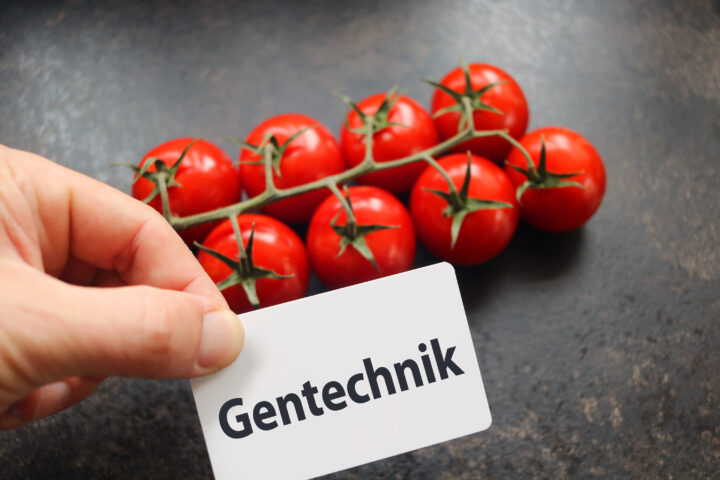
EU Agriculture Ministers Call for Greater Openness to “Gene Scissors”
The majority of agriculture ministers in the European Union see new plant breeding technologies as the key to strengthening food security. They are therefore calling for a reassessment of the rules governing the approval of new genetic engineering techniques. These new genetic engineering methods may also bring fresh impetus to attempts to combat food waste.
Monday, October 10, 2022
At an informal meeting in Prague, EU agriculture ministers discussed new plant breeding technologies such as CRISPR/Cas. The online portal “agrarheute” reports that numerous scientists explained the benefits of the new technologies for plant breeding in their presentations. For example, these technologies could hold great potential when it comes to breeding drought-resistant varieties. The agriculture ministers therefore agree that there is a need for some relaxation of the regulatory framework for plant breeding methods. The ministers are concerned that the restrictive legal situation within the EU could increasingly lead to a “brain drain”, i.e., the migration of researchers to other countries.
Strengthening Supply Security
The portal goes on to report that a new regulatory proposal on gene technology legislation can be expected in mid-2023 according to EU Agriculture Commissioner Janusz Wojciechowski. According to Czech agriculture minister Zdeněk Nekula, the Agriculture Council believes that the new breeding technologies will make a significant contribution to securing and safeguarding the food supply. The new technologies also represent a huge opportunity for smaller establishments in particular, as they are relatively easy to use and cost-effective. Another item on the agenda at this meeting of EU agriculture ministers was the fight against food waste. They believe that this is equally important in order to improve supply security. Of the four billion metric tons of food produced worldwide, around 1.3 billion metric tons is destined to end up as waste.
Fresh Impetus to Combat Food Waste
New plant breeding technologies such as the CRISPR/Cas gene scissors are also new weapons in combating food waste. In Switzerland, for example, around 20 percent of food losses occur in agriculture. The new breeding technologies could be used to make plants more resistant to pests, disease, or extreme weather, which would help to reduce food waste in the field. The breeding of more stable plants—with more robust branches, for example—could make a valuable contribution towards combating food waste. A team led by Lausanne-based researcher Sebastian Soyk used CRISPR/Cas to breed a tomato that detaches from the stem less quickly. This helps to prevent the fruit falling on the ground too early and spoiling.
Sources
Good to Know
From protection against pests and disease to protection against persistent rain, research into new applications for the CRISPR/Cas “gene scissors” is running at full speed. We have listed ten applications of new breeding technologies which will also be of interest to Swiss farmers.
Related articles

ARTE documentary: Genetic engineering in organic farming?
The ARTE documentary “Genetic engineering in organic farming?” examines key controversial questions of modern agriculture: Is the general exclusion of new breeding technologies still up to date? Can the resistance of organic farming be justified scientifically?

The Great Suffering of Farmers
Fire blight, Japanese beetles, or grapevine yellows – farmers in Valais, too, are increasingly feeling helpless in the face of the threats posed by nature. More and more often, they lack the means to effectively protect their crops. This makes it all the more important for the Federal Council to place a pragmatic balancing of interests at the forefront when setting threshold values.

'Tomatoes on your eyes'
The submitted “Food Protection Initiative” calls for “GMO-free food.” Leaving aside this illusory demand, its adoption would mean more bureaucracy, more trade barriers, and less innovation. The Swiss Farmers’ Union describes the proposal as “unnecessary” and warns of a setback to the goal of achieving an even more sustainable agriculture.

How our daily lives end up in the water
When residues in our waters are discussed, agriculture is often portrayed as the main culprit. Yet a closer look shows that the sources are diverse and often much closer to everyday life than assumed.

